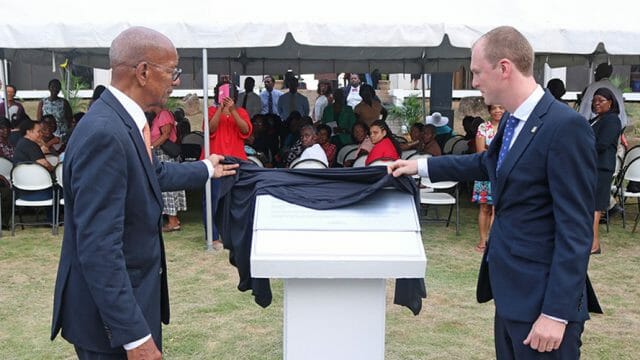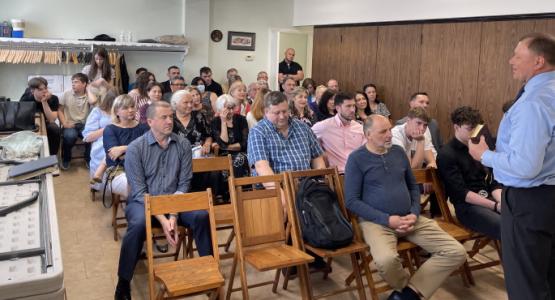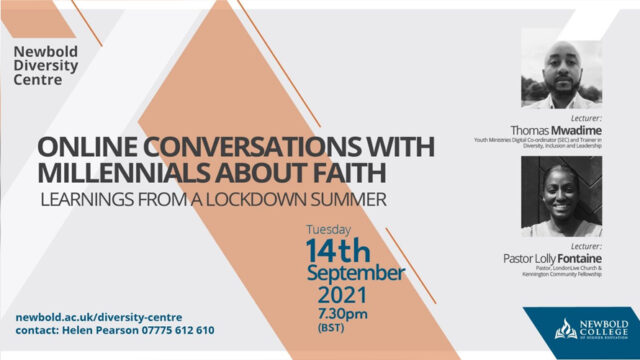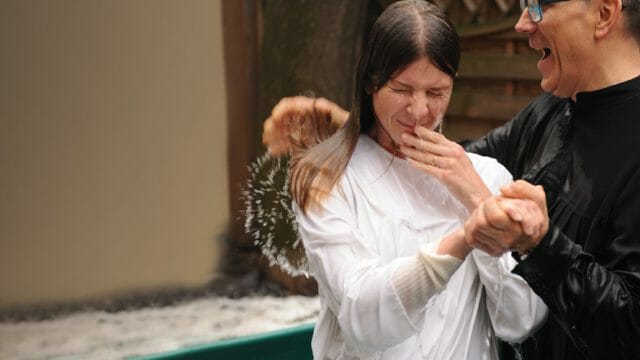Simultaneous meetings blanket the country with the gospel.
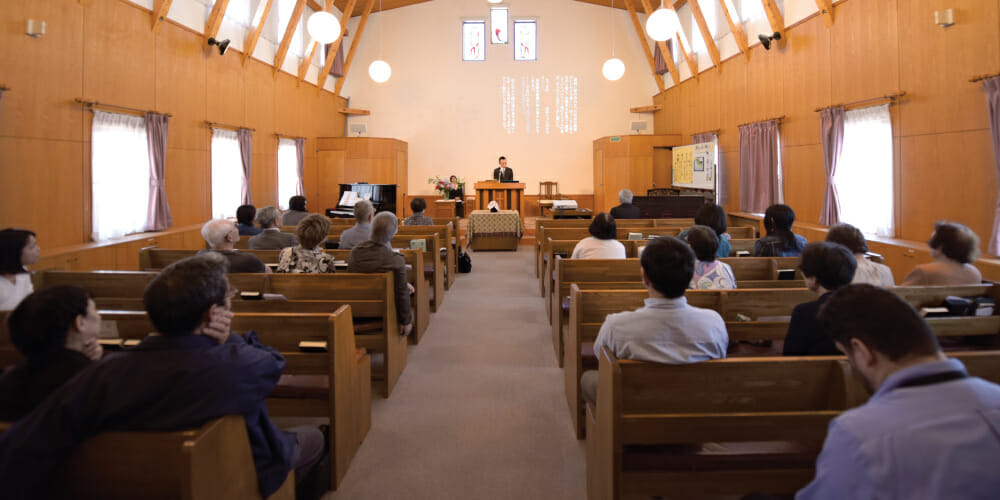
The Seventh-day Adventist Church in Japan recently organized a milestone evangelistic event as part of the world church’s Total Member Involvement (TMI) initiative, which seeks to involve all Adventist members in mission. Throughout May a total of 161 sites across Japan hosted evangelistic meetings in an effort to explore the effectiveness of public evangelism in a country where only 1 percent of the population is Christian.
A Declining Presence
Japan was chosen as the main TMI site in 2016, two years before, in part because of the realization that Japan’s membership has been declining for 15 to 20 years, and that its congregations have aged. “Many, many churches are very small, 15 to 25 people,” explains Ron Clouzet, ministerial director for the Northern Asia-Pacific (NSD) region of the Adventist Church, which also includes Japan. “A good-sized church is 50 people. And most of them are older.”
The challenge centers on the future of the church in the Land of the Rising Sun. “The members are faithful and dedicated, but they’re simply dying off and not being replaced,” says Clouzet who worked extensively with pastors in Japan prior to the meetings. Together with fellow NSD administrators, Clouzet and Japan Union Conference leaders concluded that “we need to do something otherwise [the church] is going to disappear.”
More Sites Than Churches
Japan was a significant choice, because according to Duane McKey, world church TMI coordinator, “never before had Japan attempted to do multiple meetings all at the same time.” Japan had also not hosted multinight evangelistic meetings in more than a decade. By 2017 Japanese church leaders had made plans to cover the country with “more than 160 simultaneous evangelistic series” in a territory with only 94 organized churches. The announced plan included meetings “not just at churches, but at companies, small groups, and institutions,” explained local leaders. The initiative was named All Japan 2018 Maranatha.
Initial reactions were mixed. The approach was beyond what Japan had ever done evangelistically, and arguably not in line with cultural norms. Discussions centered on whether the method would be effective in Japan, and whether local pastors could reimagine multinight meetings as a final step leading to baptism, rather than introductory meetings acquainting visitors with the Adventist Church.
Trial Runs
Sensitive to the cautious reaction by many in Japan, leaders worked on two entry points that would allow the church in Japan to become more familiar with public evangelism.
The first of these was a mission trip to the island of Mindoro in the Phillippines in the summer of 2017. Forty-eight pastors and presenters from Japan traveled to the southeast asian country to conduct evangelistic meetings—a first for many of them. The trip was organized by Adventist World Radio (AWR), which began broadcasting evangelistic messages in Mindoro before and during the meetings, inviting residents to attend the live sessions around the island.
According to McKey, who also serves as AWR president, 29 villages expressed a desire to become Adventist. “These meetings that the Japanese [pastors and presenters] participated in not only impacted their lives, but the messages transformed whole villages,” he said.
The second trial run was a field school conducted in fall 2017 by Clouzet at the Amanuma church, the country’s largest Adventist church. Extensive training and organizational models for evangelism were presented, followed by a multiweek series hosted at the local church. According to Clouzet, the field school demonstrated that by following a carefully laid plan, evangelism is a viable option and produces results in Japan.
May 2018
With the arrival of spring, Adventists in Japan were ready to host members and visitors across the country. On the mainland and on the island of Okinawa rally sessions that brought leaders and presenters together emphasized both challenges and opportunities.
There are 127 million residents in Japan, and only 15,000 Adventists, emphasized Ted Wilson, president of the Seventh-day Adventist Church, who spoke for both rallies. “But the people of Japan need to hear God’s Word,” he said. “How will that happen? By the power of the Holy Spirit through you.”
Wilson, along with his wife, Nancy (who presented health lectures), remained in Japan for three weeks, conducting a full evangelistic series at the Amanuma church. He was joined by a handful of leaders from the world church headquarters, including G. T. Ng, executive secretary; and Tim Aka, associate treasurer. Other speakers came from the NSD headquarters, including Clouzet and German Lust, NSD treasurer. Nearly 90 percent of the presenters were indigenous residents of Japan.
Throughout the series the presenters and site organizers wrestled with challenges that are very real in Japan. Among many of those challenges, the country is no longer monoethnic, and is home to many from China, the Philippines and Brazil, not to mention current and former American members of the military who live in Japan. Translation was needed at most sites. Additionally, Japan’s work ethic is extremely high, causing some not to attend the meetings because of work responsibilities.
The Impact
All 161 sites completed the series, however, having ventured into the unknown with the goal of sharing biblical messages of hope.
While other parts of the world are able to report large numbers of baptisms for similar initiatives, Japan aimed conservatively—and organizers would argue, realistically—for 100 baptisms. To date 120 people have been baptized.
The impact of All Japan 2018 Maranatha may be even broader argues Clouzet. “We hope [this] may prove to be a turning point for the churches in Japan—from nurture to mission, from an inward focus to an outward focus.”
“Churches in Japan were able to reaffirm and firmly grasp the importance of evangelism and soul winning,” concludes Masumi Shimada, president of the Japan Union Conference territory. “It is true. Evangelism work in Japan is not easy. But it is not impossible.”
McKey reports that Japan plans to hold another series of meetings in 2019, along with several hundred others throughout the NSD.


